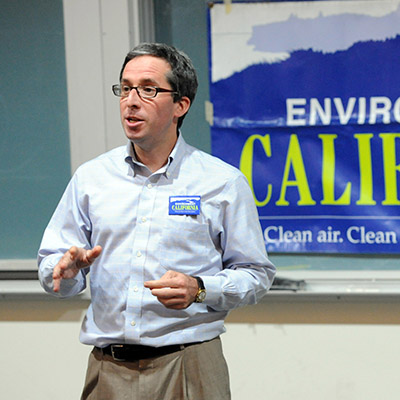
What the heck are “flex alerts” and how do we avoid them?
It's hot outside and in our homes. Here are some ideas on steps we can take to reduce the amount of energy we are using and stave off the worst impacts of climate change.
What the heck are “flex alerts” and how do we avoid them?
We knew this heat wave was coming, and we’ve been dreading it for years. Scientists keep warning us it’s going to keep getting hotter for longer periods of time. For people who think global warming is just a theory, what more proof do you need? It’s long past time to take this seriously and take steps to stave off the worst impacts of climate change.
Here in Sacramento and across the country, because of the COVID-19 pandemic, many of us are working from home, using more electricity than usual, while our kids are in their rooms distance learning. While hot temperatures are standard in August, hopefully 108 degrees F (the temperature here) isn’t the new normal.
We’re even getting “flex alerts” from our utilities. Flex alerts are a utility’s way of saying: “Yikes, we are getting close to running out of power. Turn off your appliances that use power or there might be a blackout.” It’s no exaggeration, so we all need to take steps to avoid the worst-case scenario.
In light of our current circumstances, Environment California has created a quick Top Ten list of things to help you get through this next week of extreme heat.
- Look for the appliances in your home and see what you can turn off or turn down. Check out this cool website for good ideas: https://environmentamerica.org/blogs/environment-america-blog/ame/buffy-energy-vampire-slayer
- Perform a lot of the chores on your to-do lists in the late evening or early morning. For example, don’t run your washing machine or your dishwasher during the day. They use a lot of energy and running them at night will not strain the electric grid as much.
- Turn off your air conditioner and let a fan circulate the cool air for a few hours.
- Check in on your neighbors and see if they are OK. Many folks don’t have AC or fans. While wearing a mask, stop by a neighbor’s house with a pitcher of iced tea or lemonade.
- If needed, check into your local cooling centers. Cities and towns all over California have places where people can go to cool down. Check these websites for more information. (https://www.cpuc.ca.gov/CoolingCenters/, https://www.sacbee.com/news/weather-news/article244949107.html)
- Thank your neighbors who have solar power on their homes. These folks are helping out by using “home grown” energy to light their home and run their air conditioner, rather than pulling power from the electric grid. Some of them are even contributing power to the grid!. Ask them who installed their solar and give that local business a call.
- Email, call or write your state senator and assemblyperson and ask them to pass bills to put solar panels and batteries on our schools to make them part of the energy and climate solution While our schools are closed, it’s a no-brainer.
- If you can get to some water (a lake, river, pond or the ocean) do it. Observe the rules for social distancing and wear life preservers when prudent, but swimming or just being near water can be a huge help.
- Drink a lot of water — especially with ice — to stay cool. But don’t overdo it.
- If you are not feeling well, call for help.
When it’s this sweltering, the heat can make anyone ill. Sadly, as global warming continues, we are going to see more days and weeks like this. We need to do everything we can to help ourselves, our families and our neighbors safely through this — and future — extreme heat
Authors
Dan Jacobson
Senior Advisor, Environment California
Dan provides campaign strategy and policy guidance for Environment California's program and organizational plans. Prior to his current role, he worked as the state director of Environment California and the organizing director of Florida PIRG, among other roles. The Center for Energy Efficiency and Renewable Technologies (CEERT) named Dan a Clean Power Champion in 2019, and Capitol Weekly named him one of the “Top 100 Lobbyists” in California in 2008. Dan's areas of expertise include renewable energy, electric vehicles and ocean pollution, and he has successfully advocated for the passage of dozens of bills into law, including measures to ban toxic chemicals, bring 1 million solar roofs to California, and ban single-use plastic grocery bags. He ran the campaign for SB 100, California’s law setting a goal of 100 percent clean energy by 2045.

